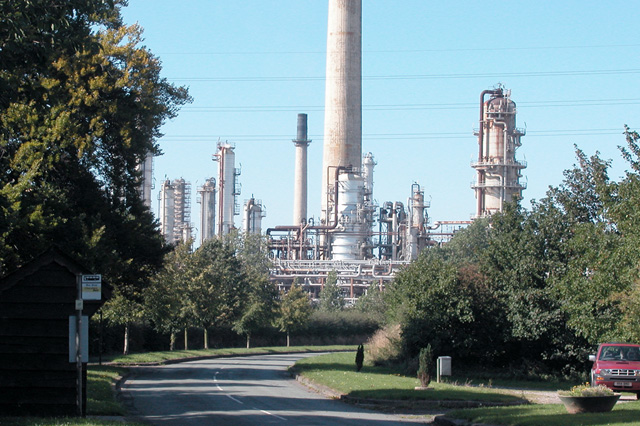Cartel-busters at the government’s arms-length Competitions and Markets Authority have reported to D-BEIS their ‘cause for concern’ in the trading margins posted by Britain’s refineries from processing crude oil.
The watchdog reported on Friday to Kwasi Kwarteng, responding to the Energy Secretary’s call in June for the CMA’s “short and focused” review into refining.
Under the group’s microscope has been the widening gap between costs of crude oil inputs and the wholesale prices which refiners have been charging retailers for petrol and gas.
On the CMA’s estimates, that gap has tripled in Britain in only twelve months, up from 10 pence per litre to around 35 pence per litre, up from 10 pence per litre.
The CMA’s early findings that are petrol prices at the pumps rocketing towards £2 a litre are caused, along with rising prices of sourcing crude on world markets, by this ‘refining spread’.
“This accounts for just over 40% of the growth in road fuel prices (24p per litre) in recent weeks”, the CMA reported.
“Both demand-side factors – in particular, the post-COVID-19 recovery – and supply-side factors including refining capacity mothballed during COVID & the Russian invasion of Ukraine, appear to have played a role in driving up the refining spread”, the CMA wrote.
“Legitimate reasons”?
The watchdog will now conduct a deeper investigation into refining costs and how they are passed on to retailers. It is scheduled to report this autumn.
CMA general counsel Sarah Cardell reported to Kwarteng; “ While there is no escaping the global pressures putting up fuel prices, the growing gap between the oil price, and the wholesale price of petrol and diesel is a cause of concern”.
“We now need to get to the bottom of whether there are legitimate reasons for this, and if not, what action can be taken to address it”, the CMA lawyer added.
Kwarteng replied, pledging his support for the CMA in its work on “this important issue”. “We will await these findings”, the energy secretary wrote.
Refineries in Britain include Exxon’s near-100-year old plant at Fawley, on the Solent, where subcontractors struck in May over pay. Loss-making Essar Oil, controlled by Mumbai-based brothers Ravi and Shashi Ruia, owns Stanlow at Ellesmere Port, pictured above.
Sir Jim Ratcliffe’s Ineos group has shared ownership of Grangemouth, on the Firth of Forth, since 2011 with PetroChina. The state-controlled entity is reportedly eager to sell, against losses tripling over twelve months to £90 million in 2020.
The initial report absolves retailers from charges of profiteering. The share of pump prices accounted for by retailers’ margins dropped from 11.2 pence per litre to 9.9 pence in second half of 2021, the report found.
The 5p cut in fuel duty made on 23 March this year has largely been passed on to motorists, the CMA found. The question was outside its immediate remit, but the wholesalers and retailers it consulted confirmed the transaction.
Supermarkets, accounting for 44% of all fuel sales, cut prices immediately the Chancellor cut the duty, the CMA observed.




